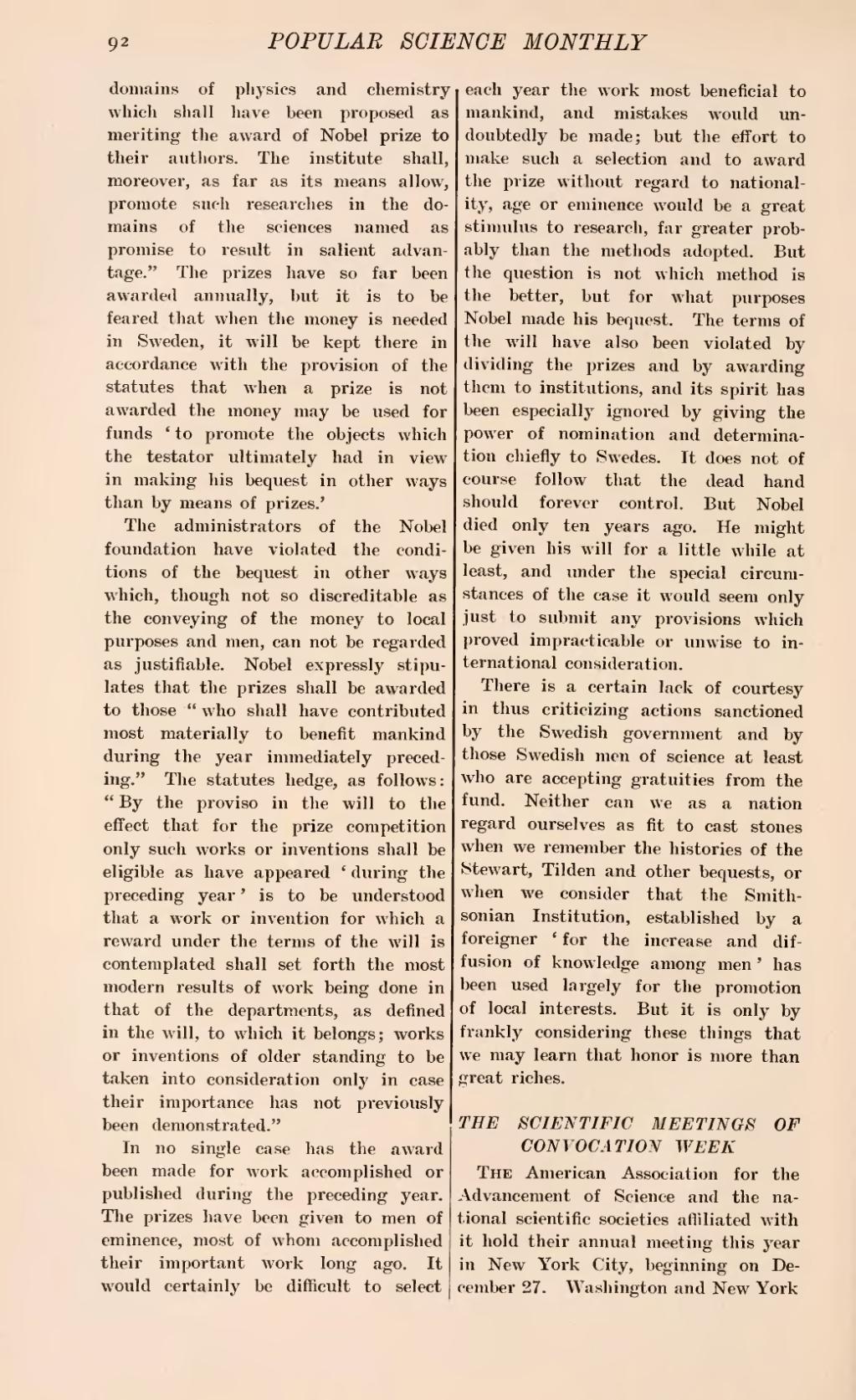domains of physics and chemistry which shall have been proposed as meriting the award of Nobel prize to their authors. The institute shall, moreover, as far as its means allow, promote such researches in the domains of the sciences named as promise to result in salient advantage." The prizes have so far been awarded annually, but it is to be feared that when the money is needed in Sweden, it will be kept there in accordance with the provision of the statutes that when a prize is not awarded the money may be used for funds 'to promote the objects which the testator ultimately had in view in making his bequest in other ways than by means of prizes.'
The administrators of the Nobel foundation have violated the conditions of the bequest in other ways which, though not so discreditable as the conveying of the money to local purposes and men, can not be regarded as justifiable. Nobel expressly stipulates that the prizes shall be awarded to those "who shall have contributed most materially to benefit mankind during the year immediately preceding." The statutes hedge, as follows: "By the proviso in the will to the effect that for the prize competition only such works or inventions shall be eligible as have appeared 'during the preceding year' is to be understood that a work or invention for which a reward under the terms of the will is contemplated shall set forth the most modern results of work being done in that of the departments, as defined in the will, to which it belongs; works or inventions of older standing to be taken into consideration only in case their importance has not previously been demonstrated."
In no single case has the award been made for work accomplished or published during the preceding year. The prizes have been given to men of eminence, most of whom accomplished their important work long ago. It would certainly be difficult to select each year the work most beneficial to mankind, and mistakes would undoubtedly be made; but the effort to make such a selection and to award the prize without regard to nationality, age or eminence would be a great stimulus to research, far greater probably than the methods adopted. But the question is not which method is the better, but for what purposes Nobel made his bequest. The terms of the will have also been violated by dividing the prizes and by awarding them to institutions, and its spirit has been especially ignored by giving the power of nomination and determination chiefly to Swedes. It does not of course follow that the dead hand should forever control. But Nobel died only ten years ago. He might be given his will for a little while at least, and under the special circumstances of the case it would seem only just to submit any provisions which proved impracticable or unwise to international consideration.
There is a certain lack of courtesy in thus criticizing actions sanctioned by the Swedish government and by those Swedish men of science at least who are accepting gratuities from the fund. Neither can we as a nation regard ourselves as fit to cast stones when we remember the histories of the Stewart, Tilden and other bequests, or when we consider that the Smithsonian Institution, established by a foreigner 'for the increase and diffusion of knowledge among men' has been used largely for the promotion of local interests. But it is only by frankly considering these things that we may learn that honor is more than great riches.
THE SCIENTIFIC MEETINGS OF CONVOCATION WEEK
The American Association for the Advancement of Science and the national scientific societies affiliated with it hold their annual meeting this year in New York City, beginning on December 27. Washington and New York

